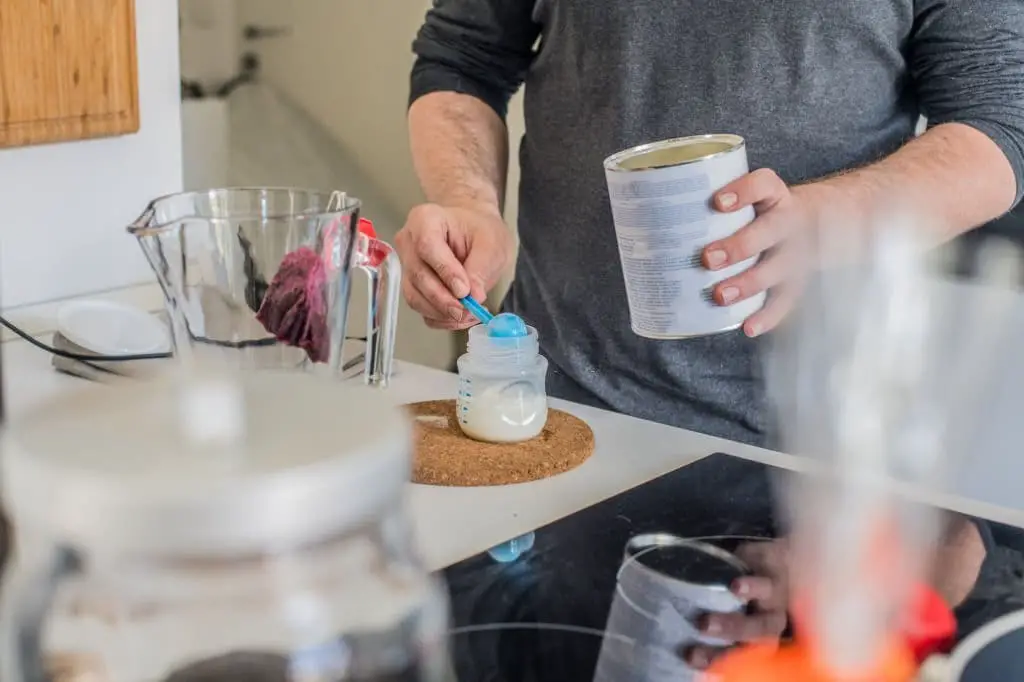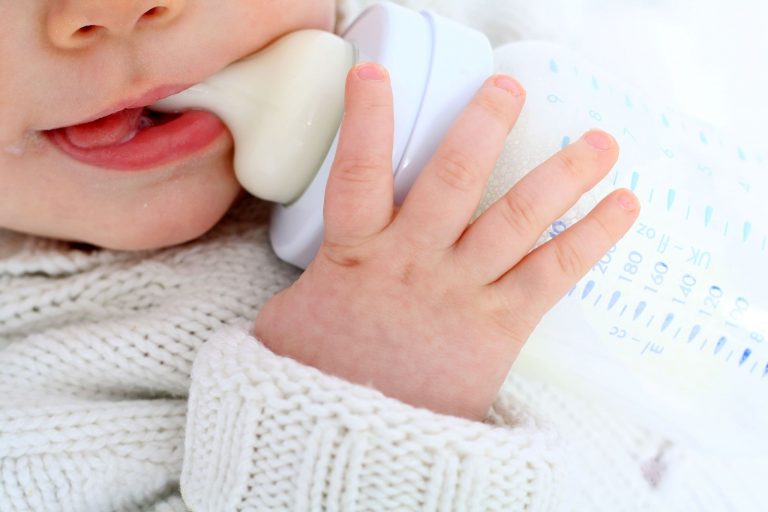
Accidentally watered down formula – what happens when you do something like that?
For any reason, a mother who produces little or no breast milk must supplement her baby’s nourishment with formula milk.
Mothers frequently choose a milk that is appropriate for their baby’s age and has a formula that is the most comparable to breast milk.
Not only is it critical to select a decent and appropriate formula for the infant, but it is also critical to apply the correct formula scientifically.
Because newborns and early children are such delicate individuals, improper formula milk use will have long-term consequences for the baby’s digestive and immune systems.
When infant formula is mixed incorrectly, the baby will experience colic, will not absorb enough nourishment, and will have a variety of other issues with the digestive tract in particular, as well as the development of the body in general.
Accidentally watered down formula?
Infant formula is one of the most tightly regulated foods in the United States, and for good reason: nutrition is critical during the early years of a child’s life, and they require precise amounts of macro and micronutrients to grow and develop normally, according to a board-certified pediatrician and child advocate.
The FDA regulates the minimum and maximum amounts of several of the chemicals in infant formula, which is why it’s critical that it’s combined properly.
The most serious concern of giving your infant wrongly mixed formula is that they may develop difficulties with their body’s salt and electrolyte balance, which can be fatal.
While a single blunder is unlikely to create substantial problems, feeding your kid poorly mixed formula for a few days or weeks can cause serious problems.
Negative influence on the baby
Each type of formula milk or baby formula comes with detailed instructions on how to use it and mix it. Parents or caregivers should read the instructions carefully and mix the milk and water according to the manufacturer’s or distributor’s recommendations.
Parents should not dilute infant formula without a doctor’s permission or suggestion, due to the risks listed below.
Poisoning of the water
Drinking too much water is extremely harmful to babies. Children under the age of ten months are unable to expel extra water from their bodies, and consuming too much water can thin the blood, induce electrolyte imbalances, and cause sodium and potassium levels to plummet dramatically, resulting in brain damage or convulsions.
Reduce the nutritional value of milk
The exact nutrients your baby requires for growth and development have been factored into formula milk. Protein, fat, carbs, vitamins, and other minerals are among the nutrients. The nutritional content that the baby can absorb will be affected if the formula is mixed incorrectly or if the directions are not followed.
Specially prepared infant formula helps your baby get the nutrition he or she needs at the right age and weight. To satisfy the particular nutritional demands of each baby, some formulae are fortified with additional minerals, such as iron. When you dilute infant formula, you’re diminishing the iron your baby requires, which can lead to anemia.
Consuming too much fluoride
Children are extremely susceptible to fluoride in tap water, according to the Fluoride Action Network (FAN). If you use fluoridated water to dilute infant formula, your baby is more likely to absorb too much fluoride. This can harm the permanent tooth germ, resulting in yellowing or blackening of the teeth.
Fluoride can be added to bottled water, so double-check before drinking.
Too much sodium in the diet
Sodium levels in some types of treated tap water are excessive. Babies who ingest too much sodium-containing water used to make formula will develop excessive blood pressure, according to physicians. If you mix the mixture incorrectly or dilute it too much, your salt levels will rise even more.
Weight loss or gradual weight growth are also options. Diluted formula might cause your baby to gain weight slowly and deprive them of the nutrients they need to thrive. It’s critical to visit your baby’s health care provider for regular checkups so that their development can be tracked. If your kid isn’t gaining weight, it could be because their formula isn’t blended properly.
Weight loss or slow weight gain
The diluted formula might cause your baby to gain weight slowly and deprive them of the nutrition they require to thrive. It’s critical to visit your baby’s health care provider for regular checkups so that their development can be monitored. If your kid isn’t gaining weight as expected, it’s possible that their formula isn’t being mixed properly.
Read more: How To Clean Medela Tubing If You’re A Beginner
How to make the right formula for your baby
Getting water ready for infant formula
When making infant formula, the first thing you should do is wash your hands with soap. It’s also crucial that you prepare the recipe in a clean environment.
Then, in an electric kettle or on the stovetop, bring fresh tap water to a boil. Hot water urns, such as hydrofoils, are also safe to use for cooking formulas in regions with pure water that fulfills Australian standards.
Allow the water to cool to a safe temperature, which should be lukewarm or room temperature. It will take roughly 30 minutes to complete this task.
Cooled, boiled water can be stored in sterilized bottles with a ring and cap in the refrigerator until needed. These bottles should be used within 24 hours.
Making powdered infant formula
Check the expiration date on the formula tin before making up the infant formula. After one month, throw away any formula tins that have been opened.
The following are the basic stages for making a formula by mixing the powder with water:
- Read the directions on the back of the formula tin. The amount of water and powder to use is specified in these instructions.
- Fill the sterilized bottle with the appropriate amount of cooled, boiling water.
- Measure the correct number of scoops into the bottle with the scoop from the formula tin. Each scoop should be leveled. You can use a sterilized knife or anything similar for this.
- A ring and cap are used to close the bottle. Gently tap the container on the bench to release the powder into the water. Swirl the bottle lightly, then shake it vigorously. This thoroughly incorporates the powder into the water.
- Remove the cap and insert a teat in its place.
- Test the temperature of the formula before feeding your baby by putting a few drops on the inside of your wrist. Check that the formula isn’t too hot – it should only feel warm.
If your baby does not finish the entire bottle of formula, discard it within one hour. It’s unsafe to keep half-empty bottles of formula for future use since they become infected with bacteria after being sucked on.
Final thoughts
Accidentally watered down formula is acceptable, but if it occurs frequently, it will have a direct impact on your infant. As a result, please read the directions carefully to ensure that you mix the correct formula for your baby’s development and health.

Hi, This is Emma Baster; As a mom, I spend my free time caring for my kids. I’ve read a lot on the Internet to improve my childcare skill and bring the best to my kids. Eruditemommy shares my knowledge and experience through helpful posts. I hope you enjoy them!






